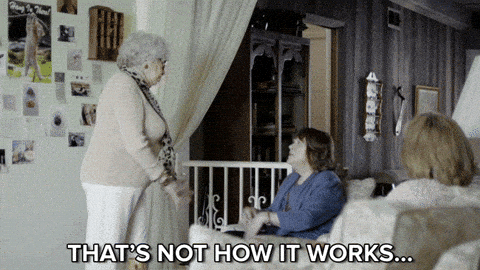GaryClare said:Helicopter Ben said:FriendlyAg said:
Growth would come to a screeching halt without fractional reserve banking. Capitalism is far from perfect and this is a risky side effect of pushing growth, but it's the best system we have…
Fractional reserve banking isn't necessarily bad, but it also doesn't mean growth would come to a halt if we stopped the practice. It is only bad if the depositors decide to withdraw and there aren't enough reserves to cover the withdrawals. The problem with this is that the incentive to keep reducing reserves chasing more profit is too high and banks can't be trusted to keep risk at a manageable level. If they haven't had a run on deposits for a long time, why not just loan out even more? The incentive, and therefore tendency, is to keep taking on risk until there's almost no reserves at all. Once depositors figure out their savings are at risk, it's all over in a hurry.
This problem is amplified with government meddling and things like the FDIC. The banks know they will be bailed out by the taxpayer if they screw up. As it stands now, I'd bet not one person in 10,000 even looks at their banks balance sheet. The assumption is that it doesn't matter and no banks ever fail. I don't know how in the world you would call that capitalism.
What we need is real capitalism (aka free markets) in banking. Private banks would have to compete for your deposits. Some could advertise high reserves and therefore be much safer. Some could offer lower reserves but a higher interest rate. The consumer would get to decide and the banks that prove to be the best stewards of money would win their business. Our current system does not operate anywhere near a capitalist model.
And that leads to the fed. They are the real culprit in the destruction of our currency. I'm not aware of any other entity that can create currency (inflation) out of thin air. Unless you get first access to the new currency, the dollars you earn and save deteriorate…slowly at first, and then rapidly as it becomes increasingly necessary to "print" more. The only fair system is a fixed monetary system. And as I've pointed out a thousand times, there is no reason that the money supply needs to increase. It only needs to be able to divide. If our currency had held its value, we would still be able to purchase things with quarters, nickels, dimes, and even pennies. And if at some point there weren't enough of these, we could issue a unit even smaller than the penny.
I find the topic of the federal reserve very interesting but wonder if I have the brainpower to figure it all out. When I read summaries like yours I typically agree with the thought process. But then I always think that the last hundred years in the United States have probably been the most prosperous in human history. And the federal reserve system had to be a big reason why. What is your opinion on that thought process?
The natural state of a truly free market is deflation. Think of how flat-screen TVs have gotten cheaper and better over the last 25 years. IMHO, our monetary system has hindered the benefits of such deflation that could have flowed to a larger proportion of our population if there had been sound money. Check out www.wtfhappenedin1971.com.

